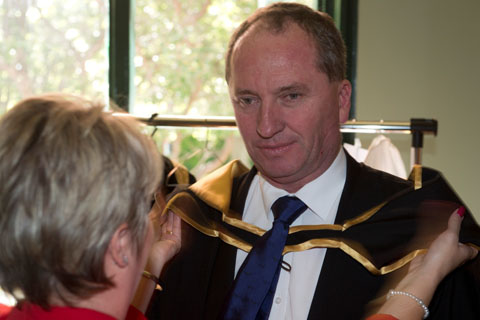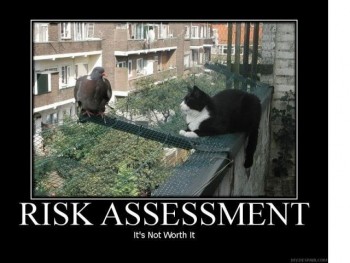Nice try, Barnaby

August 28 2013: The Coalition has today promised $100 million in funding for the 15 Rural Research and Development Corporations specifically targeted at increasing the profitability of Australian agriculture.
To date, it has failed to actually deliver one additional cent of new money for R&D projects. The hastily contrived $20 billion slush fund for pharmaceutical companies is dependent on the GP co-payment and is a long way from providing any significant money to R&D should it ever come to fruition which is doubtful.
On Thursday, Barnaby Joyce’s announcement that the Queensland grains industry will receive $14.3 million over five years is another sign of desperation by the Abbott Government to shore up votes in Queensland.
The reality is that the Abbott Government has slashed funding
- $80 million from Cooperative Research Centres
- $115 million from the CSIRO – the biggest job losses to the organisation in history
- $11 million from the Rural Industries Research and Development Corporation
- $7 million of R&D Commonwealth matching dollars cut from Rural Research and Development Corporations announced in the May Budget.
Under Labor’s analysis, there is a total of $836.2 million in direct cuts to research, led by cuts to the CSIRO and the Research Training Scheme, and the abolition of Commercialisation Australia.
It says other savings will also hit research, including the 20 per cent cut to undergraduate places in universities and a more than half-billion-dollar cut to the student start-up loan scholarships scheme.
Add to that $6 billion in combined cuts to higher education and preventative health programs.
The impact of lower funding is likely to slow or stop vital research on infectious diseases such as the deadly Ebola virus. Other efforts that will be affected are the fights against bowel or colorectal cancer, which could stop completely. These had been under way at the CSIRO.
The CSIRO generated $37.5 million in licence fees and royalties last financial year and $278.5 million in 2011-12, when royalties from a wireless technology were significantly higher.
Inventions developed at CSIRO range from cotton seeds to contact lenses, with much of the income returned to the organisation’s research budget.
Much of the royalties flowing in stem from research projects that began decades ago. Among them is wireless technology, which has produced $420 million in the past five years, and pest-resistant cotton seed varieties used in 95 per cent of Australia’s cotton crops. Multinational partners include Bayer and Monsanto as well as local partner Cotton Seed Distributors. Royalties from the cotton seed varieties, developed to be disease and pest-resistant, range between $10 million and $20 million a year.
”A lot of the commercial outcomes we are getting now are based on investment we were able to make in the science using federal government taxpayer money in the past,” Ms Bingley said. ”If we don’t have access to that, then it makes it that much harder to innovate because it’s difficult to get industry to pay for things so early on in development.”
She pointed to start-up companies that have emerged as a result of CSIRO inventions, including GeoSLAM, a company commercialising an advanced 3D laser-scanning device called Zebedee.
Chief executive of BioMelbourne Network, a Victorian industry association for the biotech sector, Michelle Gallaher said much of Australia’s success in the field was founded on CSIRO research. She said the organisation grew not only technology but also talent.
It was also helping at least 50 Australian biotech companies to develop and commercialise their research. ”Any kind of cuts to CSIRO will translate to a lack of opportunity down the track,” she said.
Last August, Education Minister Christopher Pyne said university research cuts could not be ruled out if Parliament continued to block budget measures.
When having his photo taken at a cancer research facility so he could claim his $560 allowance after attending a private function the previous evening, Tony Abbott said:
“We want to get our higher education changes through because they will be good for universities, they will be good for research, they will be good for Australia, but what we are doing is we are modestly reducing government funding but at the same time we are liberating – we are liberating – our universities to achieve what they can because if there is one institution that ought to be capable of looking after its own affairs it is a university, which is, by definition, a bastion of our best and brightest.
But I want to stress here at the Peter Mac – this is a government which is dedicated to science, which is devoted to research, and wants to massively increase Australia’s research effort.”
It seems a convenient devotion to only be discussed during campaigns and ignored during budgets, unless the sick, the unemployed, and our kids are willing to fund it of course.
In Abu Dhabi, at a series of sessions at the World Future Energy Conference on the future of global renewable energy investment and clean energy markets, there was a lot of debate among some of the world’s leading bankers and clean energy developers about which countries offered the best opportunities.
“Australia is dead,” said Edgare Kerkwijk, the head of Singapore-based Asia Green Capital, to the general agreement of all.
Just how dead the market is has been highlighted by the fact that no new projects have gotten financial commitment since the election of the Abbott government in late 2013. In 2014, investment in large scale renewables plunged 88 per cent, taking Australia from 11th ranking to 39th.
A new report from Green Energy Markets, looking at the last quarter of 2014, notes that only one large scale project got new finance approval in 2014 – the 70MW Moree solar farm, and that was mostly due to the financing awarded by the Australian Renewable Energy Agency and the Clean Energy Finance Corporation.
We were asked to judge the Coalition by their actions rather than their words.
Nice try, Barnaby, but your election sweetener to the grains industry pales into insignificance in light of your short-sighted approach to research, development, innovation and investment.
You want a country that has no debt…and no future.
Like what we do at The AIMN?
You’ll like it even more knowing that your donation will help us to keep up the good fight.
Chuck in a few bucks and see just how far it goes!
Your contribution to help with the running costs of this site will be gratefully accepted.
You can donate through PayPal or credit card via the button below, or donate via bank transfer: BSB: 062500; A/c no: 10495969










